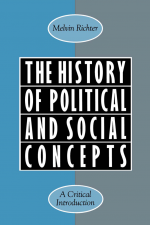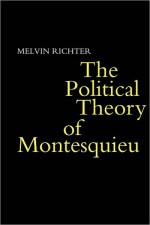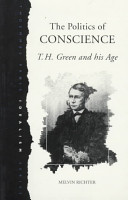 Melvin Richter was born in Revere, Mass. in 1921, and attended the Boston Latin School before entering Harvard College in 1939. Prior to entering the Army in 1943, he received a B.A., magna cum laude in Nineteenth Century History and Literature, and was elected to Phi Beta Kappa. After learning to speak Mandarin at the University of Pennsylvania, he was assigned to the Office of Strategic Services in China, where he was awarded the Soldiers’ Medal and Parachutist’s badge, as well as the Chinese Yün Huei Medal.
Melvin Richter was born in Revere, Mass. in 1921, and attended the Boston Latin School before entering Harvard College in 1939. Prior to entering the Army in 1943, he received a B.A., magna cum laude in Nineteenth Century History and Literature, and was elected to Phi Beta Kappa. After learning to speak Mandarin at the University of Pennsylvania, he was assigned to the Office of Strategic Services in China, where he was awarded the Soldiers’ Medal and Parachutist’s badge, as well as the Chinese Yün Huei Medal.
Following service in Greece with the State Department as an observer of the plebiscite on the return of King George in 1946, he began his graduate studies in Harvard as a member of the first group of the Chinese Regional Study. After transferring to the Government Department, he spent two years at Balliol College, Oxford, where he did the research for his Harvard PhD dissertation, later published as The Politics of Conscience: T. H. Green and his Age (1966 Prize of the Conference on British Studies). After teaching in Harvard’s General Education Program and Government Department, he taught at the University of Connecticut before moving to the City University of New York, where he taught at the Graduate School and Hunter College, and as a guest professor at Harvard, Princeton, Columbia, Cornell, Oxford, New York, and Wesleyan Universities. The recipient of Fulbright Senior research fellowships in Paris and Munich, he was a member of the Institute for Advanced Study, the National Humanities Center, and the History of Ideas Unit, Australian National University. He was a Fellow of the Guggenheim, Rockefeller, and National Humanities Foundations, the Social Science Research Council, and the American Council of Learned Societies.
In addition to The Politics of Conscience, his books include The Political Theory of Montesquieu, The History of Political and Social Concepts: a Critical Introduction (translated into Chinese and Korean), as well as the edited volumes Essays in Theory and History, Political Writings of Montesquieu, Political Theory and Political Education, and those co-edited: The Meaning of Historical Terms and Concepts: New Studies on Begriffsgeschichte, Dictatorship in History and Theory: Bonapartism, Caesarism, Totalitarianism, and Why Concepts Matter: Translating Political and Social Thought,
He co-founded (with J.G.A. Pocock and Neal Wood) the Conference for the Study of Political Thought, and (with Kari Palonen) the History of Political and Social Concepts Group.
His service on the editorial boards of journals included: the American Political Science Review, Political Theory, Journal of Social History, Politisches Denken Jahrbuch, Finnish Yearbook for Political Thought, European Journal of Political Theory, Revue Montesquieu, and Contributions to the History of Concepts.
He became Chevalier de l’Ordre des Arts et des Lettres, République Française in 1998.
He lived and wrote in New York City until his death in 2020.



